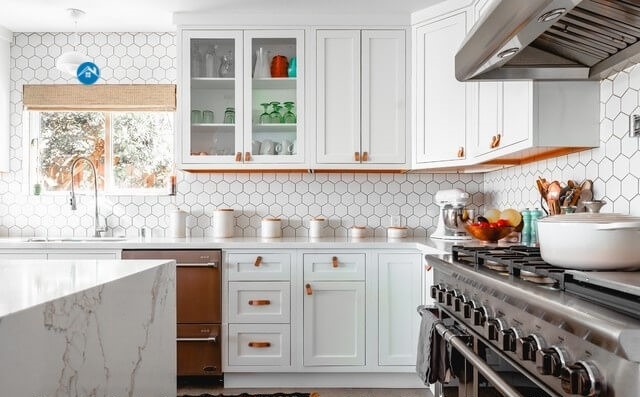How Much Does It Cost to Start a Short-Term Rental Business in Nigeria?
The short-term rental industry is rapidly growing in Nigeria, with platforms like Airbnb and Booking.com enabling property owners to earn a steady income by hosting travellers.
With increasing demand from tourists, expatriates, and business travellers, short-term rentals provide a lucrative alternative to traditional hotels. However, before diving into this business, it’s crucial to understand the startup costs involved.
Starting a short-term rental business in Nigeria requires investment in property acquisition, furnishing, maintenance, marketing, and operations.
The cost varies depending on location, property type, and management approach. In this guide, we break down the estimated costs to help you plan effectively.
1. Property Acquisition or Rental Costs
One of the most significant expenses in starting a short-term rental business is acquiring or renting a property. The cost depends on the city and neighborhood where you choose to operate.
Buying vs. Renting
- Buying a Property: If you have long-term investment plans, purchasing a property may be a better option. Property prices vary widely depending on location and size.
- Lagos (Ikoyi, Victoria Island, Lekki): ₦100M – ₦500M for a 3-bedroom apartment.
- Abuja (Maitama, Wuse, Gwarinpa): ₦80M – ₦300M for a 3-bedroom apartment.
- Port Harcourt (GRA, Peter Odili Road): ₦50M – ₦150M for a 3-bedroom apartment.
- Owning a property gives you full control, but it requires substantial capital.
- Renting a Property: If you prefer to start with lower capital, renting is a viable option. Rental costs depend on the city and specific location.
- Lagos: ₦2M – ₦10M per year for a standard 2-3 bedroom apartment.
- Abuja: ₦1.5M – ₦7M per year.
- Port Harcourt: ₦1M – ₦5M per year.
- Other cities: ₦500K – ₦3M per year.
- Consider negotiating lease agreements that allow short-term subletting to avoid legal issues.
2. Renovation & Furnishing Costs
Most properties require some level of renovation and furnishing to be suitable for short-term rentals. The goal is to create a comfortable and aesthetically pleasing space for guests.
Basic Renovation Costs
- Painting: ₦200K – ₦500K
- Plumbing fixes: ₦100K – ₦300K
- Electrical repairs: ₦100K – ₦500K
- General upgrades: ₦500K – ₦2M (tiling, kitchen cabinets, etc.)
Essential Furnishings & Appliances
- Bedroom (Beds, wardrobes, side tables): ₦500K – ₦1.5M per room.
- Living Room (Sofa set, TV, décor, curtains): ₦700K – ₦2M.
- Kitchen (Refrigerator, microwave, cooking utensils): ₦500K – ₦1.5M.
- Air Conditioners & Fans: ₦500K – ₦2M.
- Wi-Fi installation: ₦50K – ₦150K.
Interior Décor & Aesthetic Appeal
A well-decorated home attracts more bookings. Budget at least ₦200K – ₦1M for artwork, lighting, and finishing touches.
3. Legal and Registration Costs
To operate legally, you need to register your business and comply with local regulations.
- Business Name Registration (CAC): ₦20K – ₦50K.
- Local Government Permit: ₦50K – ₦200K (varies by location).
- Tax Obligations: Short-term rentals are subject to VAT (7.5%) and other state-specific tourism levies.
4. Utility Bills & Maintenance Costs
Running a short-term rental involves recurring expenses for utilities and maintenance.
- Electricity Bills: ₦20K – ₦100K monthly (depending on power consumption and alternative energy solutions).
- Water & Waste Management: ₦10K – ₦50K per month.
- Generator & Fuel Costs: ₦50K – ₦200K per month (if relying on alternative power sources).
- Routine Maintenance & Repairs: ₦100K – ₦500K annually.
5. Marketing & Listing Fees
Getting bookings requires effective marketing.
- Listing on Airbnb/Booking.com: 3% – 15% commission per booking.
- Professional Photography: ₦50K – ₦200K.
- Social Media Advertising: ₦50K – ₦500K per month.
- Website Development (Optional): ₦100K – ₦500K.
6. Cleaning & Guest Management Costs
Providing excellent customer service requires hiring cleaners and managers.
- Cleaning Service: ₦5K – ₦20K per cleaning session.
- Laundry & Toiletries Restocking: ₦20K – ₦100K monthly.
- Property Management Fees: 10% – 25% of rental income if hiring a manager.
7. Security & Insurance Costs
Safety is a priority in the short-term rental business.
- Security Cameras & Smart Locks: ₦200K – ₦1M.
- Security Personnel (if needed): ₦50K – ₦200K monthly.
- Property Insurance: ₦50K – ₦500K annually.
8. Miscellaneous Expenses & Emergency Fund
It’s wise to set aside funds for unexpected expenses.
- Unexpected Repairs: ₦100K – ₦500K annually.
- Refunds & Customer Complaints: ₦50K – ₦200K.
- Emergency Fund: ₦500K – ₦2M.
9. Estimated Total Cost Breakdown
Here’s a rough estimate for different budget levels:
| Expense Category | Low Budget (₦) | Mid-Range (₦) | High-End (₦) |
|---|---|---|---|
| Property Rent | 500K – 2M | 3M – 7M | 8M – 15M |
| Renovation & Furnishing | 1M – 3M | 4M – 7M | 8M – 15M |
| Legal & Registration | 70K – 200K | 200K – 500K | 500K – 1M |
| Utilities & Maintenance | 300K – 1M | 1M – 3M | 3M – 5M |
| Marketing & Listing | 100K – 500K | 500K – 1.5M | 1.5M – 5M |
| Security & Insurance | 200K – 1M | 1M – 3M | 3M – 5M |
| Miscellaneous & Emergency Fund | 500K – 1M | 1M – 2M | 2M – 5M |
| Total Estimated Cost | 2.67M – 8.7M | 10.7M – 24M | 26M – 51M |
Conclusion
Starting a short-term rental business in Nigeria requires careful planning and financial investment.
The costs vary based on property location, furnishing choices, and marketing strategies. To maximize profitability, start small, focus on excellent customer service, and reinvest profits into scaling your business.
If you’re considering launching a short-term rental business, take the time to research and create a budget that aligns with your financial capacity.
With proper management, short-term rentals can be a sustainable and profitable venture in Nigeria.

